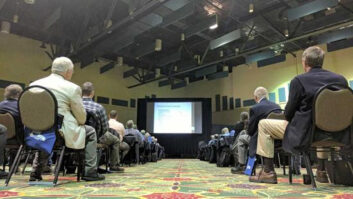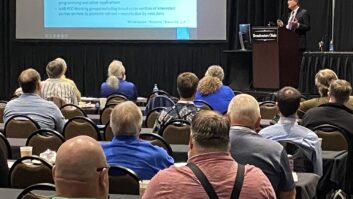
The author is the president of the Texas Association of Broadcasters. TAB commentaries are featured regularly at radioworld.com.
Odd-numbered years are especially intense on the lobbying front for the Texas Association of Broadcasters as the Texas Legislature reconvenes for its biennial five-month session just as Congress returns to Washington.
In addition to working with the National Association of Broadcasters on critical issues ranging from preserving the full tax deductibility of advertising and fighting a Performance Tax on radio stations, TAB in 2017 is advancing a number of state measures to protect journalists’ access to public information for investigative reporting.
We’ll do this while defending hard-fought wins on business and sales tax policy and a wide range of newsroom protections. TAB’s efforts have ensured that Texas broadcasters’ business investments receive the same favorable tax treatment that other industries do, and established a state legal framework that prevents costly, frivolous lawsuits.
TAB’s newsroom legislative agenda includes fixes to two state supreme court rulings that created gaping loopholes in the Texas Public Information Act, damaging journalists’ and the public’s access to records on how tax dollars are spent.
One court decision — which came after favorable rulings by the attorney general and multiple lower courts — broadened an existing AG ruling protecting governmental competitive interests such as economic development efforts. It also lowered the standard by which a company can block the release of information in a government contract if the company asserts it would face competitive harm if the information is made public. Government contracts have long been held to be public, but bids and proposals were protected by an existing exception protecting trade secrets and proprietary information.

Another ruling allowed third-party groups such as economic development councils to conduct business on behalf of government, using public money, without being required to divulge the expenditures of those tax dollars.
TAB also is seeking a legislative solution to two “open government” issues that have been raised at the capital for many legislative sessions. One involves the release by law enforcement agencies of dates of birth of candidates for public office and of individuals arrested or charged with a crime. The other relates to individuals who use the Texas Public Information Act to harass local government.
Because of the small window for legislative action, TAB invests considerable effort between legislative sessions to negotiate solutions among interested parties before meeting with lawmakers.
This is also the time during which regulatory measures enacting legislation passed the previous session demand extensive scrutiny to ensure the regulations match legislative intentions or identify unintended consequences that need to be addressed.
TAB’s advocacy efforts in Austin and Washington are enormously expensive and they pay off daily for broadcasters — small and large alike. Membership dues and net income from our annual convention and trade show sustain these activities, while revenues from our NCSA/Public Education Partnership program fund state and federal legal hotlines, a wide array of legal guides, sales/newsroom/management training, employee recruitment programs and other direct member services.
The most effective component of our lobbying is found in the offices of every radio and TV station across the state. Our mantra is that TAB can help a lawmaker understand an issue, but only that lawmaker’s constituent broadcasters can make him or her care.
So on behalf of all state broadcast associations, if you’re not a member, join. And if you are a member, participate and engage your key staff members in these efforts. Our adversaries are not standing idly by in these policy battles, and neither should you.












